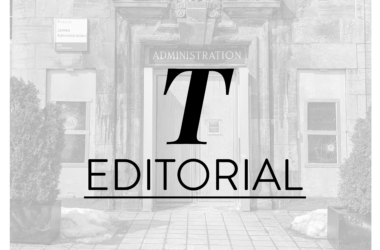Advocacy groups such as Montreal’s Centre for Research-Action on Race Relations (CRARR) have been pushing for Quebec to collect and publish race-based data on COVID-19 transmission since the onset of the pandemic. Although the government has refused to even acknowledge the existence of systemic racism in the province, independent studies demonstrate that the pandemic has taken a disproportionate toll on racialized individuals. With vaccine distribution underway, it is vital that the government recognize these racial disparities in order to develop an equitable immunization effort. Students should support advocacy to promote awareness of this issue and put pressure on the province to collect racial data, but it is equally incumbent on McGill to leverage its platform as a research institution and amplify calls for change.
When the pandemic first began last March, pandemic “hot-spots” were observed in neighbourhoods with high proportions of racialized residents. Consider that as of July 30 in Toronto, 83 per cent of reported cases were concentrated amongst BIPOC individuals. Even though Quebec Public Health Director Dr. Horacio Arruda pledged in May to begin collecting data on infected persons’ ethnic and racial backgrounds, the government has reneged on this promise. Instead, officials blamed poverty and overcrowding without recognizing that these factors are inextricable. Neighbourhoods like Montreal North are particularly crowded and predominantly inhabited by low-income and racialized people.
These residents often work in essential fields that are not conducive to a remote alternative, increasing their exposure to the virus and spreading it throughout their communities. Furthermore, many of these residents are immigrants, and the government’s failure to widely translate communications may hinder their ability to understand constantly changing public health ordinances and other measures. Similarly, those with precarious immigration statuses may be exploited relentlessly by their employers and refrain from seeking aid, treatment, or vaccination out of fear of deportation. In light of these barriers, such marginalized communities should be the focus of the provincial vaccination campaign.
Montreal’s unhoused population, which is disproportionately composed of Indigenous people, is at acute risk because of the curfew in effect from 8 p.m. to 5 a.m. Unsheltered individuals in areas like Milton-Parc are forced to crowd into shelters, where they are more likely to be exposed to the virus. Many have been accosted for nothing more than their lack of a place to call home. Although the housing crisis is an issue of poverty and class, it is fuelled by underlying racial inequities that cannot be ignored.
Quebec’s resistance to publishing statistics on the pandemic’s racial trends is ethically irresponsible. With this information, public health officials would be able to make better decisions on vaccine distribution and provide financial support to help people comply with safety measures. Especially with movie theatres, retailers, and other formerly closed sectors reopening, the absence of such information could be devastating as the pandemic inevitably worsens due to the influx of new variants of the virus.
Quebec’s reluctance to collect race-based data is particularly egregious considering that the provincial public health system continually fails BIPOC individuals, as in cases like Joyce Echaquan’s death due to racist negligence. Although some statistics on the ethnic breakdown of COVID-19 cases already exists through independent resources—including Colors of Covid, an independent database—official statistics would empower activists’ calls for government attention towards marginalized communities.
Students should recognize the work of advocates such as McGill Social Work assistant professor Alicia Boatswain-Kyte, joining her in urging the government to take action to address the pandemic’s racial discrepancies. Likewise, they should donate to Colors of Covid to fund its mission and lobby their representatives to demand race-based data. But at the same time, it is crucial that educational institutions like McGill fund research to expose the pandemic’s disparate impacts on marginalized communities. Quebec’s reticence perpetuates ignorance, and universities have a duty to hold the government to a higher standard by spreading awareness of the intersection between systemic racism and the impacts of COVID-19.









